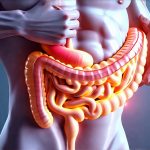The pursuit of optimal fitness – whether it’s maximizing athletic performance, building lean muscle mass, or simply maintaining overall health – often focuses intensely on training protocols and dietary strategies centered around macronutrients like protein. While these are undeniably crucial components, a growing body of research reveals that the gut microbiome plays an unexpectedly significant role in how effectively we utilize protein, recover from exercise, and preserve hard-earned muscle tissue. For years, protein metabolism was viewed primarily as a function of digestion within the gastrointestinal tract and subsequent utilization by muscles. However, we now understand it’s far more complex, deeply intertwined with the trillions of microorganisms residing in our gut – an ecosystem that profoundly influences nearly every aspect of human physiology.
Traditionally, discussions around protein intake have revolved around quantity and timing. How much protein do I need? When should I consume it for optimal results? These remain important questions, but they represent only a portion of the story. The ability to actually access the benefits of dietary protein hinges on efficient digestion, absorption, and utilization – processes that are heavily modulated by the composition and function of our gut microbiome. A dysbiotic gut, characterized by imbalances in microbial populations, can hinder these processes, diminishing the impact of even the most carefully planned protein strategies. This article will delve into the intricate relationship between the gut, protein metabolism, recovery, and lean mass preservation, exploring how we can optimize this vital connection for improved health and performance.
The Gut Microbiome & Protein Digestion/Absorption
The digestive process begins long before food reaches the small intestine where most nutrient absorption takes place. It starts in the mouth and continues through the stomach, but it’s within the large intestine – home to the vast majority of our gut microbiome – that significant protein breakdown occurs after initial digestion. While pancreatic enzymes handle much of the heavy lifting, specific bacterial species possess proteolytic capabilities—meaning they can further break down proteins into peptides and amino acids. This microbial fermentation isn’t simply about extracting more nutrients; it fundamentally alters the form in which those nutrients are available to the body.
- Certain bacteria produce enzymes that enhance protein digestibility, increasing the bioavailability of essential amino acids.
- Conversely, an imbalance in gut flora can lead to incomplete protein digestion, potentially resulting in the production of undesirable metabolites and reduced absorption.
- The microbiome also influences intestinal permeability (“leaky gut”), which impacts how effectively amino acids are transported into the bloodstream. A compromised barrier allows larger undigested protein fragments to enter circulation, triggering immune responses and hindering nutrient uptake. Understanding the role of gut inflammation can help mitigate these issues.
The composition of your gut bacteria directly affects what kind of proteins you can efficiently digest. For instance, individuals with a diverse microbiome generally exhibit improved capacity for breaking down various protein sources (animal vs. plant-based). This is particularly relevant for those following specialized diets or experiencing digestive discomfort after consuming specific foods. Furthermore, the gut microbiome’s influence extends beyond simply breaking down proteins; it also impacts their absorption and transport mechanisms, influencing how readily amino acids are available for muscle protein synthesis and other vital bodily functions. Understanding gut pH is another important factor to consider.
Gut Health & Muscle Protein Synthesis/Recovery
Muscle protein synthesis (MPS) is the process by which your body repairs and builds muscle tissue – a cornerstone of recovery from exercise and lean mass preservation. While adequate protein intake and resistance training are essential drivers of MPS, the gut microbiome plays a surprising role in modulating this process. Research suggests that specific bacterial metabolites can directly influence muscle growth and repair through several mechanisms.
One key player is butyrate, a short-chain fatty acid (SCFA) produced by beneficial bacteria during fiber fermentation. Butyrate not only provides energy for colon cells but also possesses anti-inflammatory properties, reducing exercise-induced muscle damage and promoting faster recovery. Another crucial metabolite is branched-chain amino acids (BCAAs). The gut microbiome can influence BCAA metabolism and availability, impacting their ability to stimulate MPS. A healthy gut facilitates efficient BCAA absorption, maximizing their contribution to muscle repair and growth.
Furthermore, the gut’s impact on systemic inflammation significantly influences recovery. Exercise creates micro-tears in muscle fibers, triggering an inflammatory response. While some inflammation is necessary for adaptation, excessive or prolonged inflammation hinders recovery and can lead to muscle breakdown. A balanced microbiome helps regulate this inflammatory process, promoting efficient healing and reducing muscle soreness. This includes modulation of the immune system – approximately 70% of which resides within the gut – ensuring a more controlled and effective response to exercise-induced stress. Optimizing gut health isn’t just about digestion; it’s about creating an internal environment that supports optimal recovery and adaptation. The interplay between gut bacteria and the immune system is critical here.
Dietary Strategies for Gut & Protein Synergy
Given the profound impact of the gut microbiome on protein metabolism, recovery, and lean mass preservation, what practical steps can we take to optimize this crucial connection? Several dietary strategies are proving highly effective.
- Prioritize Fiber Intake: Fiber serves as the primary food source for beneficial gut bacteria, promoting their growth and diversity. Aim for a variety of fiber-rich foods like fruits, vegetables, whole grains, and legumes. Different types of fiber feed different bacterial species, so diversity is key.
- Incorporate Fermented Foods: Foods like yogurt (with live cultures), kefir, sauerkraut, kimchi, and kombucha are naturally rich in probiotics—live microorganisms that can positively influence gut flora. Consuming these foods regularly can help restore balance and improve microbial diversity.
- Consider Prebiotic Supplementation: Prebiotics are non-digestible fibers that selectively promote the growth of beneficial bacteria. Supplements like inulin, fructooligosaccharides (FOS), and galactooligosaccharides (GOS) can be added to your diet to further support gut health.
It’s important to note that dietary changes should be implemented gradually to avoid digestive upset. Introducing large amounts of fiber or fermented foods too quickly can lead to bloating, gas, and discomfort. Listen to your body and adjust accordingly. Furthermore, individual responses to different probiotic and prebiotic interventions vary considerably; what works for one person may not work for another. Considering gut movement can also help reduce discomfort.
The Role of Probiotics & Personalized Nutrition
While the benefits of probiotics are increasingly recognized, it’s crucial to understand that they aren’t a “one-size-fits-all” solution. Different strains of bacteria have different effects on the body, and selecting the right probiotic is essential for achieving desired results. Research suggests that certain strains may be more effective at improving protein digestion, reducing inflammation, or enhancing muscle recovery.
- Lactobacillus and Bifidobacterium are two well-studied genera with numerous strains demonstrating positive impacts on gut health.
- However, the optimal probiotic blend depends on individual needs and gut microbiome composition.
- Emerging technologies like stool analysis can provide valuable insights into your unique microbial profile, allowing for a more personalized approach to probiotic supplementation.
The future of nutrition is moving towards personalization – recognizing that dietary recommendations should be tailored to each individual’s genetic makeup, lifestyle, and gut microbiome. This includes not only selecting the right probiotics but also adjusting macronutrient ratios and timing based on how your body responds. Personalized nutrition aims to maximize the benefits of dietary interventions by aligning them with your unique biological characteristics. Understanding the gut-brain axis is key to a holistic approach.
Minimizing Gut Disruptors & Long-Term Strategies
Maintaining a healthy gut requires more than just adding beneficial foods; it also involves minimizing factors that can disrupt microbial balance. Several common lifestyle and dietary habits can negatively impact gut health, hindering protein metabolism and recovery.
- Antibiotic overuse is perhaps the most significant disruptor, indiscriminately killing both harmful and beneficial bacteria.*
- Chronic stress can alter gut permeability and microbial composition, leading to inflammation and impaired nutrient absorption.
- Highly processed foods, rich in sugar and unhealthy fats, promote the growth of detrimental bacteria while suppressing beneficial ones.
Long-term strategies for gut health should focus on creating a sustainable lifestyle that supports microbial diversity and function. This includes:
- Prioritizing whole, unprocessed foods.
- Managing stress through techniques like meditation or yoga.
- Limiting antibiotic use to medically necessary situations.
- Staying adequately hydrated – water is essential for gut motility and bacterial balance.
- Engaging in regular physical activity – exercise has been shown to positively influence gut microbiome composition.
By adopting these strategies, we can cultivate a thriving gut ecosystem that optimizes protein metabolism, accelerates recovery, and supports long-term lean mass preservation – ultimately unlocking our full potential for health and performance. The importance of digestive balance cannot be overstated.


















